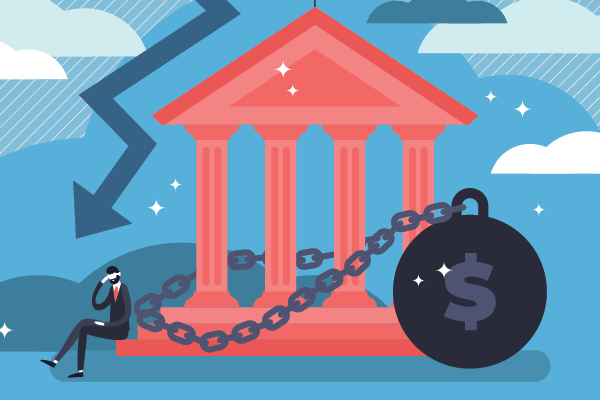
This pandemic created unprecedented unemployment, which was not only devastating to thousands of Californians and their families, but also drained the state’s unemployment insurance (UI) fund.
As of May 2020, California’s UI fund was depleted, which meant California had to begin borrowing money from the federal government to pay the ongoing unemployment benefits to over a million workers in California. The Employment Development Department recently stated that the current loan balance from the federal government is $21 billion and that this amount is expected to grow to $24 billion by the end of this year.
Unless the state intervenes and pays off this outstanding debt, California employers will be forced to pay this loan through ongoing and escalating tax increases for decades to come.
Proposals
In his May budget revision, the Governor proposed allocating approximately $1 billion toward paying down this deficit.
In response, the Legislature proposed a $2 billion small business tax credit, spread out over the next 10 years, to offset the tax increases that will start next year to pay down the deficit.
Reasons to Pay Down UI Debt
The Governor’s proposal is the direction the state needs to go in to address the outstanding UI debt, and here is why:
• Paying down the UI debt is the only way to eliminate tax increases on California employers. Every year the UI debt is not paid off, the per employee tax will increase. In 2022, the tax increase will be $21 per employee, per year. Thereafter, the tax will continue to go up $21 each year the UI debt is not paid off until it reaches a maximum amount of $420 per employee. In order to avoid these higher annual taxes, the debt needs to be paid off. The Governor’s proposal pays down the debt. The Legislature’s proposal does not.
• A small business tax credit will benefit only a limited number of employers and is unpredictable. While we appreciate the Legislature’s effort to protect small employers, the maximum tax credit proposed each year is $10 million and so not all small employers would receive this benefit. As the tax to pay down the UI debt increases each year, the universe of employers who receive this benefit will inevitably decline. And, as we have seen just last year with other business tax credits, if the state faces a deficit and needs additional revenue, this tax credit could be suspended or completely eliminated.
• Paying down the UI debt eliminates an ongoing financial obligation on the General Fund. The state is responsible for any interest on the outstanding UI debt. Accordingly, each year the UI debt is not paid off, the state must pay the interest through the General Fund. Paying down the debt benefits the state’s General Fund.
• Paying down the UI debt also protects employees if there is a recession in the next few years. California needs a healthy and solvent UI fund in order to provide benefits for employees during an economic downturn. Paying down the UI debt so that the state’s fund is solvent is the only way in which to prepare for a recession.
One-Time Cost
The state has a budget surplus and paying down the UI fund is a one-time cost that will benefit California employers, employees, and the state General Fund. The majority of other states have already paid off their UI debt. California needs to do the same and pay down the UI debt as soon as possible.

